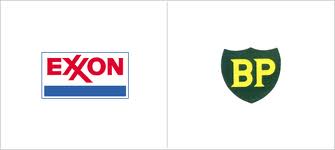I find interesting that in the past weeks we have seen a few reports stating that BP could be taken over by Exxon.
Given that the idea seems to be taking hold at a couple of banks, I believe that in order to properly analyse that possibility, apart from brokers’ speculation, one would have to answer a few questions, critical to assess if a $400bn company would bid for a $139bn one at a premium (which inevitably would require masses of synergies and benefits, as it would have to be done with a capital increase). I would suggest an academic thought process that answered these:
A) Does Exxon want Amoco at a higher price after the history since 1998?. When BP merged with Amoco in 1998, the energy world was shocked. Shocked partly because Amoco was seen as a “less attractive” set of assets in the industry. Exxon’s current CEO, Rex Tillerson, was a top manager then and knew Amoco well. Since the $110bn merger of BP-Amoco in 1998, what we have seen out of the integration have been challenging returns, unfortunate incidents from Texas City, to Thunderhorse and Prudhoe Bay, culminating in Macondo. Considering that the liabilities and risk of gross negligence of Macondo are better understood but not fully clarified, would Exxon pay premium multiples for a replica of their core business and such a risk?.
B) Is BP much cheaper than other Big Oil stocks? It does not look massively cheaper than its peers, it is simply more of a conglomerate due to TNK. The entire sector has de-rated (see here), and BP only trades at a small discount to its peers (c5%), yet trades at a premium to mid-sized US integrateds. Exxon is much more expensive than BP on multiples, but that is a reflection of its industry leading ROCE position, lack of quoted divisions and centralized structure.Just on ROCE metrics, a very important one for the US giants, BP would be highly dilutive (Exxon’s ROCE stands at the top end of the industry range, at 23%, BP at 17.6% ex-Macondo costs).Meanwhile, BP is conducting a very logical and commendable “shrink to grow” strategy that will inevitably make the company focus in re-structuring. And selling legacy assets means also selling high return, fully depreciated assets, at good price admittedly, but puts pressure on delivering super-normal returns on growth projects like Rumaila (Iraq). And would any other supermajor want to conduct that same re-structuring?.
BP only really looks cheap against peers on PE and that may be a function of its corporate structure. On PE, BP trades at 6xPE 2012E versus 7.2x for Shell, but 6.4x ENI, for example, and 6.9x the sector. BP trades at 4x P/CF 2012E versus Shell at 4.5x and sector at 3.91x. BP offers a 4.35% yield 2012E vs. sector 5.21% (consensus estimates).
C) Would Exxon want to pay a premium for the Russian risk that TNK can provide (and TNK is c20% of BP’s reserves)?. The situation with the partners of TNK (AAR) would probably not be any better with a change of ownership, and some would argue it could get worse if the buyer was an American, as the Russian government might not approve of the deal.
D) Would Exxon pay up and do a corporate giant merger for more exposure to Thunderhorse, a bigger exposure to Angola, and new exposure to Libya?.
E) Does Exxon really want a giant refinery complex? c24% of BP’s assets are in refining and marketing. With 7mmbpd of ovecapacity in global refining, would Exxon pay a premium for those assets?. Exxon owns 37 refineries worldwide already.
F) The “resource” opportunity… is it so evident?. Those who sell BP as a takeover candidate mention 18bn boe of proven reserves and 45bn of unproven that could be very attractive priced. But the same giant resources can be seen to be very cheap at Exxon itself (24.8bn boe of proven reserves, adding c3bn only last year). But people fail to mention how much of that enormous BP resource base is Russia’s TNK (20%).
G) Does Exxon want more US downstream assets, with the risk that they can be targeted by any administration?. would anti-trust issues make the deal too costly, maybe not worth doing, because of the sheer scale of the divestments required (est $10bn)?.
H) What would BP do to Exxon’s growth profile? BP is expected to grow production by 2% pa to 2015, c1% pa less than Exxon. Dilution in growth could mean dilution in multiples for Exxon. BP produces 2.3mmbpd. Exxon produces 3% of the world’s output (3.9mboepd). Does Exxon need to buy more production in areas where they are already present?.
I) The “other businesses”. Almost 16% of BP’s invested capital is outside the traditional oil areas (exploation, production, refining and marketing). With businesses that range from travel to solar pv. BP is a global company with the largest exposure of any oil company to alternative energies, $10-15bn (valuation range) worth of renewable (solar, wind) investments as well as biofuels, and one of the leading shipping companies (BP shipping). Is Exxon interested in adding renewables and shipping to their portfolio?.
The debate is on. BP is an interesting company on its own. It is slowly recovering from two major strategic blows. But I fear that the time of multibillion mergers between integrateds ended a few years ago. The reason why XOM bought XTO was clear (see http://energyandmoney.blogspot.com/2010/01/revolution-of-shale-gas.html). This idea? Probably as plausible as the much trumpeted “Shell for BP” of 2005, or “Petrochina for BP” of 2009.
Disclaimer: This is an academic analysis, not a recommendation to buy or sell a security.
Further read:http://energyandmoney.blogspot.com/2011/05/oil-sector-down-on-year-while-oil-29ytd.html
